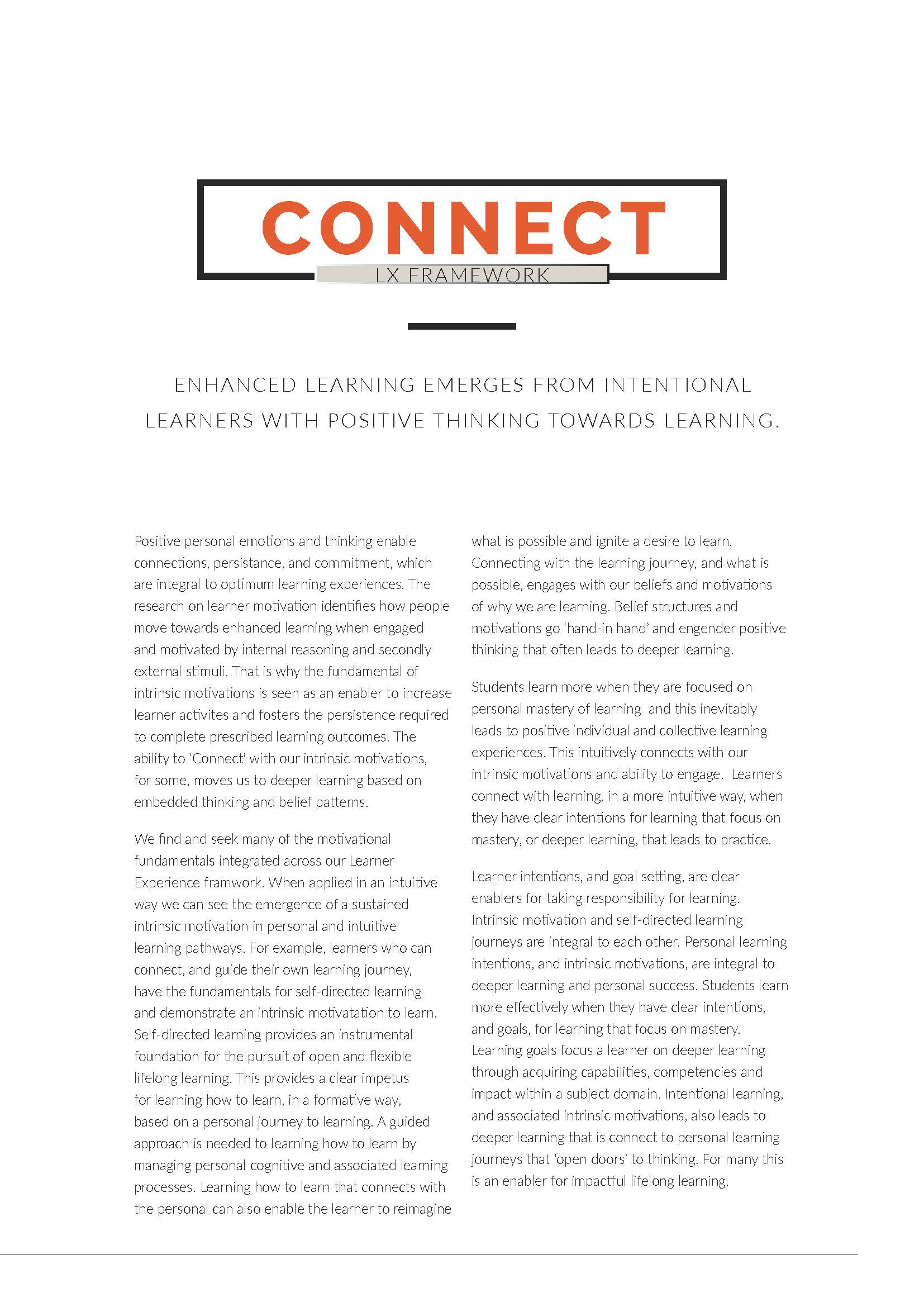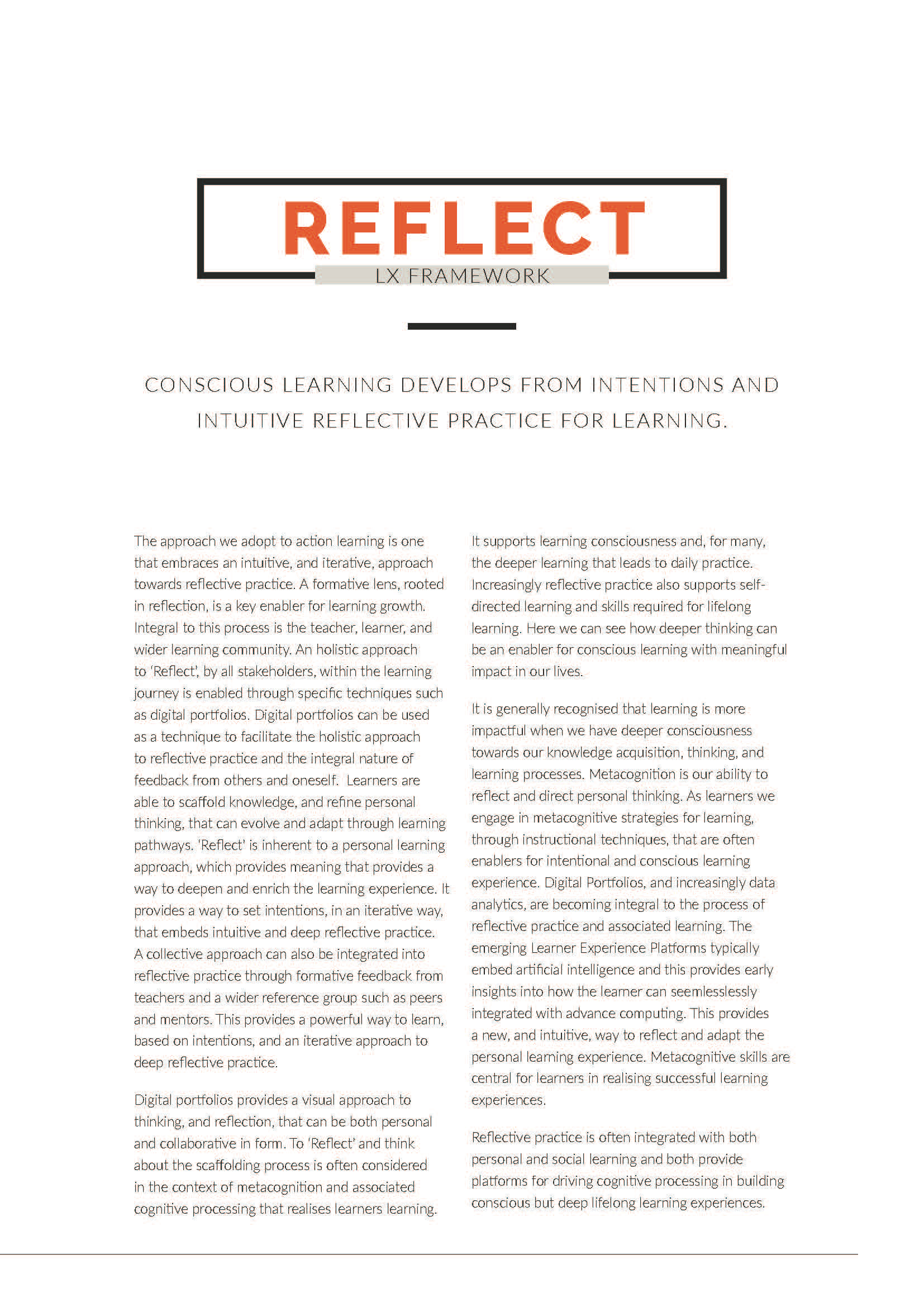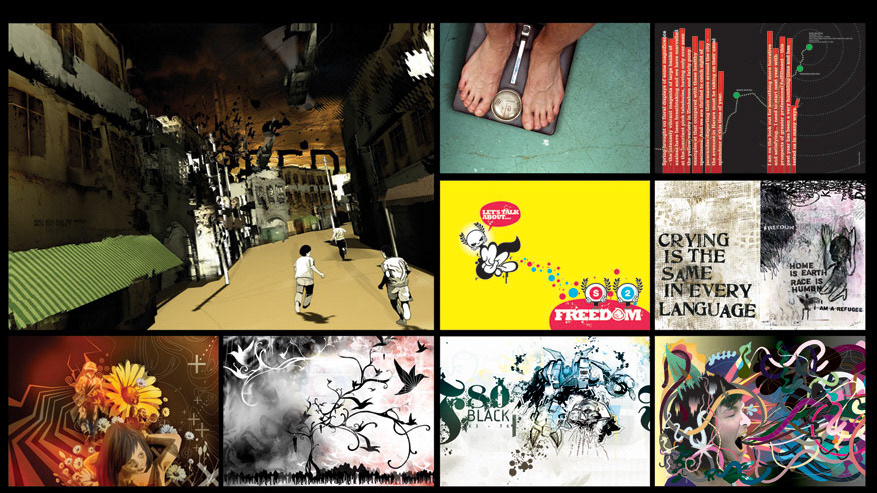Glenn's open learning is focused on a co-design approach. The approach is rooted in Sustainable Devleopment Goal 4 (SDG-4) that is an enabler for inclusion, lifelong learning, and innovation. Professional digital portfolios provides a tool to support the scaffolding of capabilities, competencies and impact.
Rethinking learning experiences embraces a personalise approach to learning that supports learners in taking back, in part, the learning process. Glenn's co-design for Learning is intended to be an enabler for taking back learning design, through intelligent systems, in being able to manage both content and process and thereby enhance learning capabilities, competences, and impact. Important concepts of the co-design for learning framework includes the integration of both formal, and informal, learning episodes into a single experience. This increasingly integrates across institutional boundaries to connect a range of resources and systems within a personalised learning space.
Pedagogy and the learner Experience
The origins of pedagogy, as a word, alludes to the critical nature of the relationship between learner and teacher. I identify how pedagogy utilises dialogue as a way to connect human beings. Recognition of such relationships enables pedagogy to be conceptualised as a collaborative partnership through dialogue. Today, lifelong learning is critical. The rapid pace of technological change and a sustained need across most disciplines of practice for lifelong learning. This increasingly integrates across institutional boundaries to connect a range of resources and systems within a personalised learning space. We observe a fusion of tradition and innovation in the personalised learning developments.
Learning Experience Framework
Rethinking learning experiences embraces a personalize approach to learning that supports learners in taking back, in part, the learning process. Our Learning Experience Framework is intended to be an enabler for taking back learning design, through intelligent systems, in being able to manage both content and process and thereby optimize the achievement of learning outcomes. Important concepts of the Learning Experience framework includes the integration of both formal and informal learning episodes into a single experience. Our Learner Experience Framework is composed of one or more subsystems that integrate seamlessly with the purpose of enhancing the learning experience.
LXF1 - Connect: Enhanced learning emerges from intentional learners with positive thinking toward learning
As we know as a learner we naturally learn when we are motivated and have an enhanced focus towards intentional learning. The fundaments of learning touches on the inner thinking of the learner (cognitive layer) and refers to the centrality of emotions and their role in enabling us to achieve success. Emotions are highly interconnected with both personal learning and how we ‘Connect’ with others in our collective journeys. Motivation, and positive feelings, drive the learning process to engage with the doing and thinking fostered by the other aspects of the LXF foundations and are typically interconnected with how we ‘Act’ and ‘Reflect’. The ability to ‘Connect’ with our intrinsic motivations, for some, moves us to deeper learning based on embedded thinking and belief patterns. For many this is an enabler for impactful lifelong learning.
LXF2 - Act: Engaged learning evolves from action based learning. Action ignites our cognitive thinking.
Learners intuitively learn when they learn by doing. Action based practice is of central importance in positioning learning as both active and usable. In being able to undertake an action based approach, learners must also know through intuitively connecting with themselves and others. The fundamentals in the context of ‘Act’ informs the design of the action based, and applied practice, that should be central to all learning experiences. The instructional design approach needs to inform what, and how, the learner needs to learn. Learners intuitively embrace instructional strategies, and related assessments, that are aligned to clear learning goals and outcomes. The harmony of these fundamentals, or learning design, provides a consistent learner experience.
5 - Reflect: Conscious learning develops from intentions and intuitive reflective practice for learning.
Learners embed learning when they set goals and ‘Reflect’ on their learning journey. A focus on setting goals and mastery, learning outcomes, action learning, informed iterative feedback, personal and collective learning, and reflective practice provides a learning pathway to conscious learning. These interconnections are the building blocks for learning journeys and enablers for intuitive and natural learning growth. Students learn better when they receive intuitive formative and summative feedback that provide pathways for reflective practice on the learning journey. Formative feedback, throughout the process of learning, provides a guided and responsive approach to enabling reflective learning practice. Personal intentions, and associated reflections, are are cornerstones for conscious learning.

LX1 -Connect

LX2 - Act











